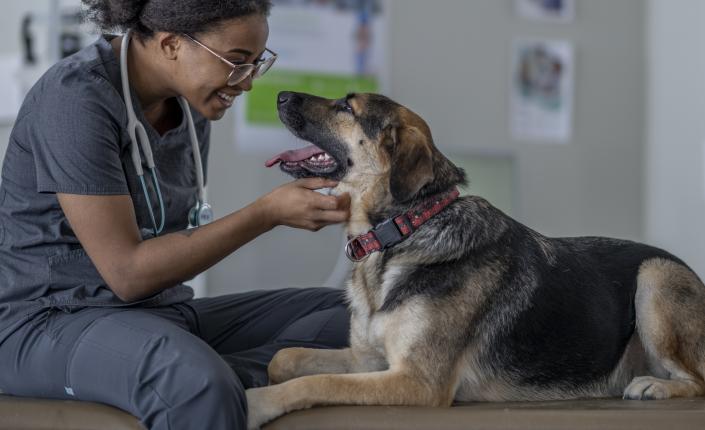Cancer in Dogs & Cats

We don’t like to think of our pets getting sick, but it can happen. One aspect of pet health that amazes pet owners, particularly new pet owners, is that cancer is just as common in dogs and cats as it is in people. In fact, one in four dogs and one in six cats will ultimately succumb to this terrible disease.
What factors indicate the likelihood of your pet getting cancer?
Genes: As with most cancers, there is often a genetic component involved in determining if your cat or dog will develop this disease.
Breed: Some breeds, such as Boxers and Golden Retrievers, are more likely to get cancer in their lifetime. In fact, 60% of Golden Retrievers will likely die from a cancer related problem.
Age: As your pet’s body starts to wear down over time, cancer becomes more likely.
Environmental Factors: Exposure to toxic substances, such as cigarette smoke, is a proven factor in the development of cancer in dogs and cats.
Additional Causes: Like most health problems, the cause of cancer is multi-factorial. In other words, there are many possible causes. For instance, owners often blame food, but there is almost no scientific evidence to support this.
The possibility of developing cancer exists for virtually every organ in the body, but some cancers tend to be more common than others. In cats, lymphoma (cancer of the lymph nodes) is by far the most common. Lymphoma also affects dogs, but they are more inclined to develop other cancers, such as cancer of the liver, spleen and bones.
Detecting cancer in your dogs & cats
A cancerous tumour is essentially normal tissue cells that have run rogue, dividing and multiplying more rapidly than the body’s defense system can handle. Some cancers are very slow growing, like a haemangiosarcoma that develops in the spleen and can take many months to grow to any noticeable size. On the other hand, lymphoma can become a significant issue in what seems like a matter of days. It can be very challenging for you to detect cancer within your pet. This is one of the reasons why regular visits to your veterinarian are so important.
Although you may not be aware of a tumour inside your cat or dog, tumours and cancerous growths that affect the skin are readily detectable. Examine your pets weekly and schedule a check-up with your veterinarian if you find an unusual lump or other abnormality. Many skin masses are absolutely nothing to worry about, but for the ones that are, the sooner they are dealt with, the better. Early sterilization can reduce the risk of some cancers, like mammary adenocarcinoma. You should ask your veterinarian if early sterilization is right for your pet.
Treatment options for dogs & cats with cancer
Almost everyone has been touched by cancer to some degree – personally or through a friend/relative. Although we fear cancer in our pets, as we do in ourselves, it can be treated effectively, particularly if it is detected early. Collaboration between medical and veterinary researchers has discovered similarities between species that have proven very useful in tackling cancers in both people and their pets. An example of this is the similarity between feline breast cancer and some forms of breast cancer in women.
State of the art treatment facilities now exist in veterinary medicine, offering the same high tech solutions for your pet, as you would hope for yourself. For example, the Ontario Veterinary College in Guelph houses the Animal Cancer Centre and offers phenomenal treatment options in advanced cancer therapy. New drugs are being discovered along with other more effective treatment methods. The only downside to all of this is that cancer treatment can become costly, which makes the use of Pets Plus Us pet health insurance a very worthwhile investment.